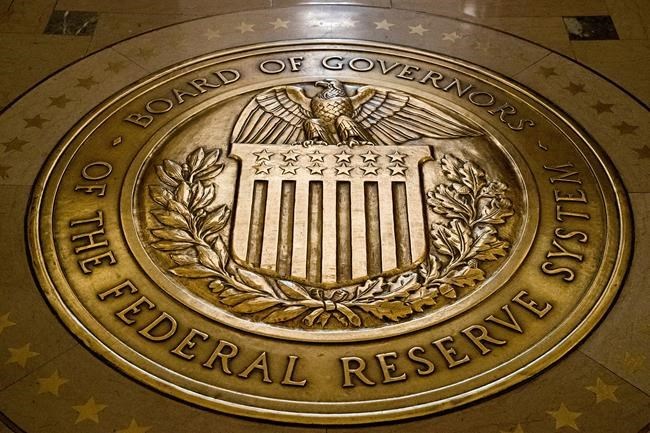WASHINGTON (AP) — A top Federal Reserve official said Tuesday that he is increasingly confident that inflation will continue falling this year back to the Fed's 2% target level, after two years of accelerating price spikes that hurt millions of American households.
The official, Christopher Waller, an influential member of the Fed's Board of Governors, noted that inflation is slowing even as growth and hiring remain solid — a combination that he called “almost as good as it gets.”
Waller's remarks follow recent comments from other senior Fed officials that suggest that the central bank remains on track to begin cutting its benchmark short-term interest rate, likely by mid-year. In December, the policymakers collectively forecast that they would cut their rate three times this year. Wall Street investors and many economists expect the first cut in March.
“The progress I have noted on inflation, combined with the data in hand on economic and financial conditions and my outlook has made me more confident than I have been since 2021 that inflation is on a path to 2%,” Waller said in written remarks to the Brookings Institution. The Fed prefers for inflation to be about 2%, which it sees as having little negative effect on the economy.
Consumer inflation, according to the Fed's preferred measure, soared to about 7% in mid-2022, compared with a year earlier. In response, beginning in March 2022 the Fed hiked its key rate 11 times, to its highest level in 22 years. Year-over-year inflation fell to 2.6% in November, the Fed's measure showed.
Yet in his remarks Tuesday, Waller cautioned that the Fed might not cut rates as urgently as many on Wall Street have envisioned. He noted that the economy is continuing to expand, with the unemployment rate at just 3.7%, not far above a half-century low, while inflation cools.
“But will it last?” he asked.
Fed officials, he added, will want to see further evidence that inflation is still on track to 2% before embarking on rate cuts.
“We can take our time to make sure we do this right,” he said.
Before Waller spoke, Wall Street investors had placed a 72% likelihood of a rate cut in March, based on futures prices. according to CME's FedWatch tool. That likelihood slipped to about 65% afterward.
Krishna Guha, an economic analyst at the investment bank Evercore ISI, said that investors might have been disappointed by Waller's remarks after an earlier speech of his in November, when he suggested that falling inflation could lead the Fed to cut rates as early as March.
“We view his comments ... as indicating that he does not expect to push for a March cut and read his arguments in general as more consistent with our baseline of a first cut in May or June,” Guha wrote in a note to clients.
Still, Waller noted in his remarks that, "In the end, I am feeling more confident that the economy can continue along its current trajectory.”
Waller provided few hints of the likely timetable for Fed rate cuts. He said the timing and pace of the cuts would depend on the path of inflation and other economic data.
Waller did note an important shift in the Fed’s focus, from a singular emphasis on fighting inflation to a more balanced stance. The central bank, he said, now must consider both holding inflation in check and keeping employment high. Such a shift suggests that the Fed could cut rates quickly if the economy and hiring showed signs of faltering in the coming months.
“Today, I view the risks to our employment and inflation mandates as being closely balanced," he said.
Waller's comments followed similarly optimistic remarks from John Williams, president of the Federal Reserve Bank of New York, last week. Williams is also seen as a close confidant of Powell's.
“The data indicate that we are clearly moving in the right direction,” Williams said. "I expect inflation to continue to slow to about 2 1/4% this year, before reaching our 2% longer-run goal next year.”
Christopher Rugaber, The Associated Press



